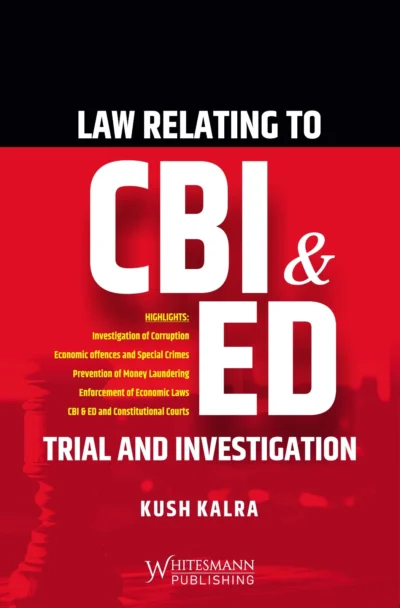Law relating to CBI & ED Trial And Investigation By Kush Kalra
Original price was: ₹1,710.₹1,370Current price is: ₹1,370.
Description
The law relating to CBI (Central Bureau of Investigation) and ED (Enforcement Directorate) in India governs their powers, structure, functioning, and jurisdiction in investigating corruption, economic offences, and serious crimes. These are two of the most powerful investigative agencies in India, and their powers are derived from different statutes.
—
🔹 1. CBI – Central Bureau of Investigation
✅ Legal Basis
CBI is not a statutory body; it derives power from:
Delhi Special Police Establishment Act, 1946 (DSPE Act)
Set up in 1963 by a Government of India resolution.
Functions under the Ministry of Personnel, Public Grievances and Pensions, Government of India.
✅ Jurisdiction & Functions
Investigates:
Corruption cases
Economic offences
Serious crimes (e.g., murders, scams, frauds)
Cannot investigate a case in a state without consent of the state government (Section 6, DSPE Act).
State consent can be:
General (ongoing permission)
Specific (case-wise)
✅ Important Sections of DSPE Act
Section 2 – Constitution of Delhi Special Police Establishment
Section 3 – Offences to be investigated by CBI (notified by Central Government)
Section 6 – Consent of state government required
✅ Relevant Case Law
State of West Bengal v. Committee for Protection of Democratic Rights (2010): Supreme Court held that High Courts/Supreme Court can order CBI probe even without state consent.
CBI v. Rajesh Gandhi (1996): No one has a right to demand CBI enquiry as a matter of right.
—
🔹 2. ED – Enforcement Directorate
✅ Legal Basis
Statutory body under the **Department of Revenue
Additional information
| Binding | Paperback |
|---|---|
| Language | English |
| Publisher | Whitesmann Publishing Co. |
You must be logged in to post a review.










Reviews
There are no reviews yet.